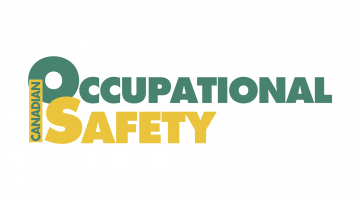Disability and work
People with disabilities face substantially lower employment levels than the general working-age population. This page pulls together research and resources on policies and practices aimed at improving the labour market participation of people living with disabilities.
Featured

At Work article
Inclusive employment strategies, resources showcased at symposium
Published: November 12, 2025

Research Highlights
Examining four types of job disruptions due to a health condition, and the differences expected when workplace support needs are met
Job disruptions are common among workers living with chronic physical and/or mental health conditions, an IWH study has found. The study investigated the effects of workplace supports had on four types of job disruptions.
Published: March 11, 2025

IWH in the media
Canadian workers aren’t too worried about robots taking their jobs, web survey finds
If walking and talking robots are coming to replace employees at counters, desks and tills, Canadians don’t appear to be too concerned about it. The Toronto Star's Kieran Leavitt reports on a survey by the Environics Institute, with comments from IWH's Dr. Arif Jetha.
Published: Toronto Star, December 2020
Journal article
Journal article
The working disadvantaged: the role of age, job tenure and disability in precarious work
Published: BMC Public Health, December 2020

IWH in the media
The future of work will hit vulnerable people the hardest
A great deal of attention is being paid to the future of work and its impact on Canadians. Often missing from the discussion is the extent to which different workers will be included or excluded from the changing labour market. As the pace of change quickens in the years ahead, the sustainable employment of vulnerable groups could be in greater jeopardy and inequity could widen, writes Dr. Arif Jetha.
Published: The Conversation, March 2020
IWH Speaker Series
IWH Speaker Series
Introducing the new CSA standard for work disability management systems
Every year, tens of thousands of Canadians become disabled and are unable to work, thereby becoming excluded from the many health advantages of workforce participation. In response to the growing concerns about managing disability in the workplace, the CSA Group, in conjunction with the Centre for Research on Work Disability Policy (CRWDP) and Conestoga College, has developed a new standard called the Work Disability Management Systems Standard (CSA Z1011). In this presentation, CRWDP director and IWH Senior Scientist Dr. Emile Tompa highlights components of the standard, which sets out best practices on injury/illness rehabilitation, return-to-work plans, and accommodation of workers with disabilities.
Published: February 2020
Journal article
Journal article
Managing work disability using a new Canadian standard
Published: OOHNA Journal, January 2020

IWH in the media
Tailored support effective for young workers with disabilities
Young adults today have difficulty entering the labour market, especially those with chronic disabling conditions. A systematic review of the relevant research found tailored supported employment interventions can help young individuals with chronic disabilities succeed on the job, Amanda Silliker reports.
Published: Canadian Occupational Safety, February 2019

At Work article
Supported job placements help young adults with disabilities find work: review
Job placements, offered in tandem with a suite of tailored employment supports, can help young people with disabilities make the transition into the labour force, according to an IWH systematic review.
Published: February 2019
Journal article
Journal article
Work-focused interventions that promote the labour market transition of young adults with chronic disabling health conditions: a systematic review
Published: Occupational and Environmental Medicine, January 2019
Project
Project
Future-proofing young Canadians with disabilities for the changing labour market
This study systematically examines the future of work as it relates to young people with disabilities, with the aim of anticipating the work and labour market changes that will affect their inclusion and success in the future of work.
Status: Ongoing
IWH Speaker Series
IWH Speaker Series
Promoting labour market transitions for young adults with chronic disabling conditions: a systematic review
Young adulthood is an important phase of life when most people establish their careers. And yet, it's a time when many young adults with disabling health conditions find themselves excluded from the labour market. A systematic review led by Dr. Arif Jetha examined work-focused interventions to support the transition of these young adults into the labour market. In this presentation, he shares findings and highlights the effectiveness of these interventions across different career stages and disability types.
Published: November 2018